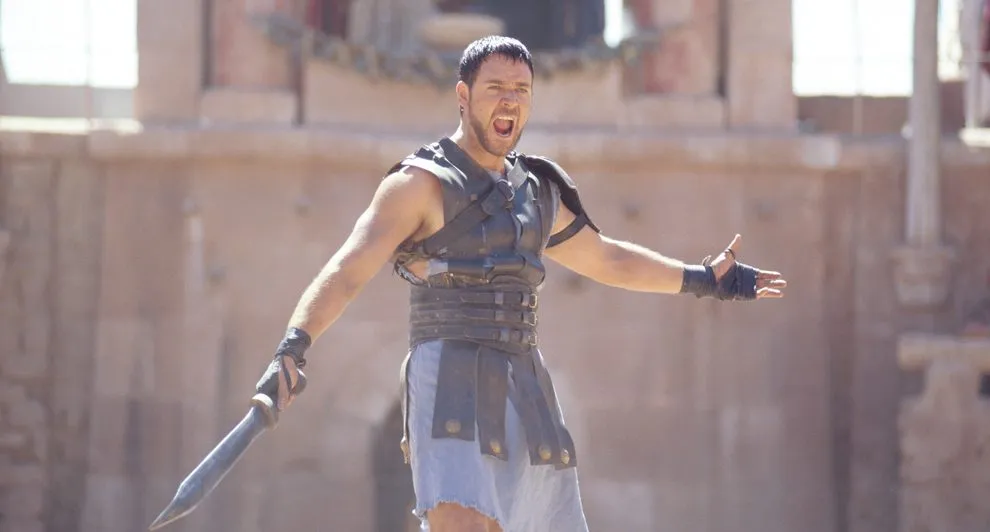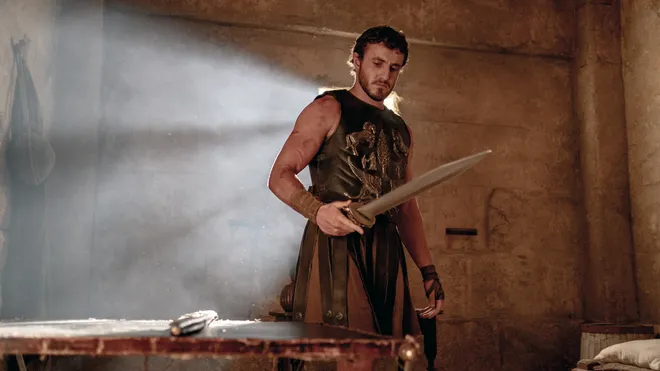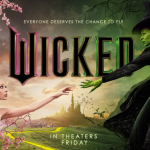Gladiator (2000)

Movie Review: Gladiator (2000)
Ridley Scott’s Gladiator (2000) is a monumental epic that redefined the historical drama genre for the modern era. With its sweeping narrative, breathtaking visuals, and powerful performances, the film captivated audiences and critics alike, earning five Academy Awards, including Best Picture and Best Actor for Russell Crowe. A tale of revenge, redemption, and honor, Gladiator remains a timeless cinematic achievement.
Plot Summary
The story centers on Maximus Decimus Meridius (Russell Crowe), a Roman general loyal to Emperor Marcus Aurelius (Richard Harris). After the emperor’s assassination by his ambitious son Commodus (Joaquin Phoenix), Maximus is betrayed, his family murdered, and he is enslaved. Forced into the life of a gladiator, Maximus rises through the ranks of the arena, fueled by a desire for vengeance and a hope to restore Rome to its former glory. His journey leads to a climactic showdown in the Colosseum, where honor and justice clash against tyranny and corruption.
Performances and Characters
Russell Crowe’s portrayal of Maximus is nothing short of iconic. He brings a commanding presence and emotional depth to the role, capturing the character’s grief, rage, and unyielding sense of duty. Crowe’s ability to convey quiet vulnerability amidst his fierce resolve makes Maximus a hero both relatable and awe-inspiring.
Joaquin Phoenix delivers a masterclass in villainy as Commodus, crafting a character driven by insecurity, jealousy, and a desperate need for approval. Phoenix’s performance is equal parts chilling and pitiable, elevating Commodus beyond a one-dimensional antagonist.
The supporting cast also shines, with standout performances from Connie Nielsen as Lucilla, Commodus’ conflicted sister, and Oliver Reed as Proximo, the gruff gladiator trainer whose journey adds layers of complexity to the story. Djimon Hounsou as Juba, Maximus’ loyal ally in the arena, provides emotional resonance, emphasizing themes of camaraderie and hope.
Visuals and Direction
Ridley Scott’s direction is a triumph, blending grand spectacle with intimate storytelling. The film’s production design and cinematography transport viewers to the grandeur of ancient Rome, with meticulously recreated sets and stunning visual effects. The Colosseum’s gladiatorial battles are visceral and immersive, combining practical stunts with CGI to create sequences that are both thrilling and brutal.
Scott’s use of color and lighting enhances the narrative’s emotional beats, from the golden hues of Maximus’ idyllic past to the grim, shadowy tones of his enslavement. The film’s visual language is further enriched by John Mathieson’s cinematography, which captures both the epic scale and the intimate moments with equal finesse.
Music and Soundtrack
Hans Zimmer and Lisa Gerrard’s score is an essential component of Gladiator’s emotional impact. The music, with its blend of orchestral grandeur and haunting vocals, underscores the film’s themes of loss, triumph, and destiny. Tracks like “Now We Are Free” and “The Battle” have become iconic, evoking the film’s spirit of resilience and sacrifice.
The sound design is equally impressive, immersing viewers in the cacophony of battle and the roar of the Colosseum crowd. The attention to auditory detail enhances the film’s realism and dramatic intensity.
Themes and Symbolism
At its core, Gladiator is a story about the enduring power of legacy and the pursuit of justice. Maximus’ journey from soldier to slave to symbol of resistance embodies themes of resilience, honor, and sacrifice. His struggle against Commodus serves as a metaphor for the fight against corruption and tyranny, resonating across historical and contemporary contexts.
The film also explores the complexities of leadership and loyalty. Marcus Aurelius’ vision for Rome contrasts sharply with Commodus’ self-serving rule, while Maximus’ loyalty to the ideal of Rome underscores the tension between personal vengeance and the greater good.
Critiques
While Gladiator is widely celebrated, it is not without its flaws. Some historical inaccuracies, such as the portrayal of Roman politics and gladiatorial culture, have drawn criticism from historians. Additionally, the film’s pacing occasionally lags, particularly in the second act, as it transitions between character development and action sequences.
The reliance on familiar tropes, such as the revenge-driven hero, has also been noted. However, the film’s execution and emotional resonance elevate it beyond the confines of its genre conventions.
Legacy and Impact
Gladiator revitalized the sword-and-sandal genre, paving the way for a resurgence of historical epics in the 21st century. Its influence can be seen in films like Troy (2004) and 300 (2006), as well as in the rise of epic television series such as Game of Thrones. The film’s iconic lines, including “Are you not entertained?” and “What we do in life echoes in eternity,” have entered the cultural lexicon, cementing its status as a modern classic.
Conclusion
Gladiator (2000) is a masterful blend of action, drama, and historical spectacle. With its unforgettable performances, breathtaking visuals, and stirring music, it remains a benchmark for epic filmmaking. While not without its imperfections, the film’s emotional depth and universal themes ensure its enduring appeal.
Whether you’re drawn to its visceral action, its richly drawn characters, or its exploration of timeless ideals, Gladiator offers an experience that is as thrilling as it is moving. It is a film that truly earns its place among the greats of cinematic history.











